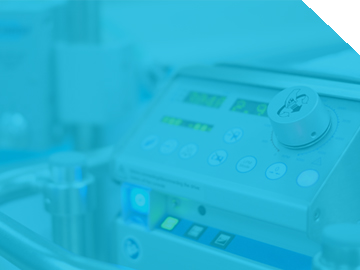Mobilizing a Full Response:
Determination of a Carbapenem-Resistant Acinetobacter baumannii Outbreak in the Surgical ICU Using epiXact®
Background
Over several months, five patients were identified with carbapenem-resistant Acinetobacter baumannii (CRAB) at a large academic hospital. Four of the five patients were cared for sequentially in the same hospital room in the burn intensive care unit (BICU), while the fifth patient was admitted to a different ICU with no overlap in patients or providers. The first patient was diagnosed through routine surveillance on hospital day 29. The next two patients were diagnosed within 48 hours of admission, a timeframe that would traditionally suggest a community acquired infection. But after a third patient presented with CRAB several weeks later, expanded infection control procedures were introduced to control the putative outbreak. The investigation into these five clinical cases is described in “Community-Acquired in Name Only: A Cluster of Carbapenem-Resistant Acinetobacter baumannii in a Burn Intensive Care Unit and Beyond,” published in Infection Control and Hospital Epidemiology.1
The High Stakes Decision
A CRAB outbreak in the Burn ICU required a full and immediate response. However, the unusually rapid presentation within 48 hours after admission from patients diagnosed months apart made it difficult to conclude if the CRAB infections were acquired in the hospital or brought in from the community. Case reviews performed for the index case and first two patients did not indicate a clear source for the infections, but the third patient brought additional urgency to the investigation. Clear and compelling evidence demonstrating this was truly a hospital-acquired infection rather than different community strains was considered important to getting hospital-wide agreement on the interventions, which included the possibility of environmental sampling, room closings, and expanded cleaning procedures for rooms and equipment.
Solution
The Infection Control team contacted Day Zero Diagnostics to request an epiXact investigation of the patient isolates. Within 2 days of receiving samples, the epiXact service provided whole genome sequencing data and analysis that confirmed that all patient isolates were clonal. With this definitive confirmation, the hospital moved quickly to close specific rooms in the BICU and to perform an environmental analysis of potential reservoirs. In a follow-up analysis, environmental samples from multiple surfaces in the room and related hospital equipment were also sequenced and identified potential sources of transmission.
Outcome
Rapid, definitive data confirming hospital transmissions resulted in quick decisions by the hospital with full agreement and commitment from the leadership of the BICU, environmental services, and hospital staff. Expanded cleaning procedures of rooms and equipment as well as changes to cleaning procedures for problematic equipment such as bed attachments and mobile equipment were implemented.
1. Shenoy ES et al. Community-Acquired in Name Only: A Cluster of Carbapenem-Resistant Acinetobacter baumannii in a Burn Intensive Care Unit and Beyond. Infection Control & Hospital Epidemiology. March 2020.
2. Bulens SN et al. Carbapenem Nonsusceptible Acinetobacter baumannii, 8 US Metropolitan Areas, 2012-2015. EID Journal, Vol 24:4, April 2018
Day Zero Diagnostics is a CLIA certified laboratory. EpiXact is available as a CLIA validated service or Research Use Only. EpiXact is available as Research Use Only in CA, MD, PA, RI and NY.
Infections with carbapenem-resistant A. baumannii have been associated with death rates as high as 52%2

To Screen or Not to Screen
Using epiXact to Determine if Large Scale Healthcare Worker Screening for MRSA is Merited

Confidence to Make the Hard Decisions
Epixact Confirms a Transmission in a Clinical Trial with Wide Ranging Implications
